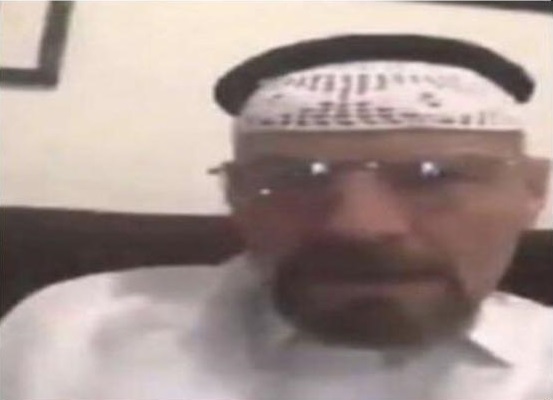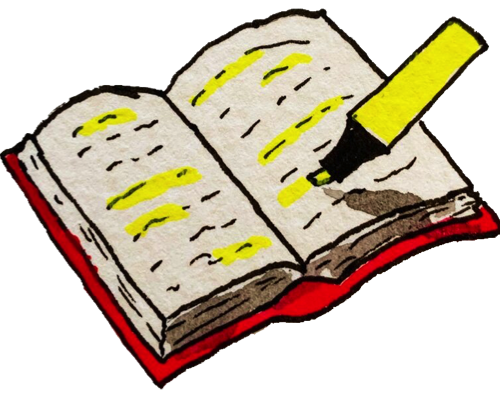Yim Yum!
Erika3sis [she/her, xe/xem]
An anarchist here to ask asinine questions about the USSR. At least I was when I got here. Alt accounts Erika2rsis@lemmy.blahaj.zone Erika4sis@lemmygrad.ml
she/xe/it/thon/ꙮ | NO/EN/RU/JP
- 3 Posts
- 216 Comments
My mental MP3 player in response to this image decided to put on “Blumenkranz” from the Kill la Kill soundtrack
So this is a whole Twitter meme?
I once saw someone write
Sexual content
Will Powers and Ray Blanchard are both naked and oiled up. Who’s winning the twerk-off?
And I’ve never been the same since then.

 5·16 days ago
5·16 days agoI’ve used it a little. It often loads slowly for me, it seems like it’s inaccurate in some places or lacks detail in some places, but as a whole I like it. I think it’s a good project with a good future.

 7·23 days ago
7·23 days agorogue puppet shows
I can fuck with that

 40·23 days ago
40·23 days agoStreaming or torrenting? Nah, the power it takes to keep those servers running and cooled is enormous.
Buying DVDs? Nah, the manufacture and distribution of those also has an enormous carbon footprint.
Getting the plaintext script from the Internet and making a local theater production out of it? Now THAT’S peak carbon neutrality!

 16·24 days ago
16·24 days agoAnd when everyone’s female… Muahahahahaha, no one will be.

 3·24 days ago
3·24 days agoOnce again we see what I call the Seppo-Usonian-American tripartite division: the “Israeli” “Americans” or other “Americans” in “Israel”, these are really Seppos through-and-through, they have sold their chance at dignity for a “guarantee” of protection by The Empire, making their own interests align with those of The Empire; the Palestinian Americans, and the solidary Americans in the West Bank generally, these are the true Americans, because for as much as their lives may or may not have been shaped by Americana or by living in the USA, their interests do not align with those of the USA, so these Americans in fact feel very acutely how little their lives actually matter to a USA that despite all evidence insists the contrary.
I genuinely feel like the word “American”, as most people use it, is a sort of Janus word or contronym, it’s a word with multiple contradictory meanings. I have already reflected on this in my own country in Northern Europe, that just because I happen to share a first language and a blue passport with the NATO ghouls, that this alone does not make me and them belong to the same nation, our nations are in fact not only distinct but in an antagonistic relationship with one another! And the “Israeli” “Americans” I would say have far more in common with those Seppo soldiers in Norway, and the Palestinian Americans far more in common with myself, than the opposite or either group with the other.
So this is not a dynamic that’s unique to the (“)Americans(”) in “Israel”/Palestine, this is a dynamic that is omnipresent throughout the entirety of what people presently understand as the “American diaspora” — it just happens to be that in Palestine, the contradictions are much more plainly visible and felt and much more openly discussed… Except even in the case of Palestine, it’s phrased as “Israeli Americans” and “Palestinian Americans”, as if these groups somehow share a common “American-ness” that the US government is simply hypocritical about, as if it’s “brother against brother”. But call a Seppo a Seppo, and all the apparent hypocrisy of the US government towards its overseas citizens disappears in an instant.

 5·25 days ago
5·25 days agoI should clarify that I am not a parent nor a child psychologist nor anything else to that effect, I am only speaking from my own experience of being parented—
I remember being around that age and I had a similar problem of just watching absolute political slop on YouTube. My access to content was never restricted nor closely monitored, but when my mom caught me watching some reactionary bozo on occasion, she would just call it what it was — and then all of a sudden I found myself a lot less interested in that type of content. When she or others would point out the problems with what I was watching or the messages I got from the content, that showed me the “smoke and mirrors” of it. And insofar as I engaged in that content out of a desire to appear precocious… Well, realizing that I was manifesting the exact phenomenon that C.S. Lewis described in that famous quote of his about the “fear of childishness”, and that my attempt to convince myself that I was more grown-up than I really was was collapsing in front of me, I just felt ashamed — but very specifically not humiliated.
So I think the best thing you can do is to understand what role these streamers really play for the child. Because it’s probably not all wanting to be popular, it’s probably not all wanting to appear precocious, and it’s probably not all wanting to build an identity; just as it’s probably not all noticing the ways in which they’re genuinely getting screwed over, and acting on genuine frustrations, genuinely trying to understand why this is and what to do about it even with the limitations of their own lived experience; nor is it probably all learning about the world’s issues and wanting to do their best to be a good person even about things that don’t very obviously affect them personally.
Rather the child’s enjoyment is in all likelihood probably some sort of blend of these or perhaps other things. If you can determine the composition of the blend, you will know where to strike to most effectively reveal the “smoke and mirrors”, and make the child feel that sort of productive shame that causes actual self-reflection. You should aim to be like the elderly Hungarian-born immigrant saying “And that makes a difference, doesn’t it?”, if you’re familiar with that old propaganda film: shame is a negative emotion that makes one want to avoid the cause of the feeling, and it should be your aim to make the child identify the cause of the shame to be the shameful thing rather than the one shaming.
I trust that you’re on good terms with your child and only have good intentions, so I think that you will succeed. And of course I should reiterate that my own perspective is limited, and what worked for myself might not work for everyone.

 3·26 days ago
3·26 days agoIt seems a rare opportunity, so yes, I would like to know from the horse’s mouth as it were.

 2·26 days ago
2·26 days agoWhat makes Luxembourg specifically the lower limit of area for a viable country? If it is that a country smaller than Luxembourg cannot feed its current population using only the resources of its land and territorial waters, then my point is that there are also countries way bigger than Luxembourg for which this is also the case – but you could not call these countries microstates or neocolonies with a straight face.

 4·26 days ago
4·26 days agoDoes this mean that Norway is by your definition a neocolony?

 4·26 days ago
4·26 days agoI didn’t make any comments guessing it was Gibraltar, but honestly I had a suspicion it was Gibraltar. I would recommend that you look into urban agriculture, generally keep reading theory and reading local history and news and interacting with your local environment, and learning about regions similar to Gibraltar. Gibraltar may have virtually no industry now, but I wouldn’t be so sure that this will always be the case. A fun game you might want to try is to take something you know to be true, imagining that it’s somehow become the opposite, setting a time frame for this change, and then trying to imagine how this change came to be.
By the way, were you worried that mentioning you were from Gibraltar would trigger a discussion about the conflict surrounding Gibraltar’s status? I definitely have semi-informed things to say about that topic, but I don’t know if now’s the right time.

 8·26 days ago
8·26 days agoI once saw a documentary about food independence in the Bahamas, but it seems like this documentary is gone from YouTube now, and I don’t know where else I can find it. It brought up all sorts of techniques that Bahamians are using to grow their own food despite the negligible amount of arable land in the country. Other countries have dealt with a lack of arable land by simply building more land, but whether land reclamation is at all feasible in your country is not for me to say.
In any case, there should be two aims for the food and goods issue:
- To become more self-reliant — even if a country grows only 20% of its own food, that’s still more independent than a country that grows only 10%, and 10% more than 5%, 5% more than 1%, 1% more than 0%. Even if full food independence is impossible, even a small increase is better than nothing.
- To become less reliant on any one country or bloc — importing 80% of your food from, say, the USA, gives the USA a lot more influence over the country than importing only 20% of your food from the USA. Diversifying sources of imports protects the country from shocks to supply chains.
I think we can compare a country to the case of an individual person: you sell your labor power to the capitalist class to get a wage that you largely spend paying for food, utilities, housing, other goods and services, and this ends up only giving that money back to the capitalist class. So it’s a dependent relationship, you can’t provide yourself with all of life’s necessities. However, you can still find ways to become more independent, and you can find ways to get more of your necessities from other people in a way that doesn’t feed into (or feeds less into) this dependent relationship. Doing these things, you might still need to sell your labor power to the capitalist class in order to survive, and you might still give much of your earnings back to the capitalists, but you’ll at least have something to fall back on if you try to assert yourself and things don’t quite go your way.
So I might say that a focus for the left in your country should be organization across national lines. Wins for the socialists in the countries yours imports from is a win for your own country’s independence. In other words, don’t get too distracted by lines on a map, that you don’t look at the systems of dependence themselves, because these systems also impact many regions recognized as parts of larger countries.

 21·27 days ago
21·27 days agoRESULTS FOR TODAY’S BATTLE…
BOTH SIDES LOSE DUE TO A REALLY, REALLY OBVIOUS OVERSIGHT

 3·27 days ago
3·27 days agoTell me about it!

 6·27 days ago
6·27 days agoNo, it is a result of romanization: the dots over the ё are often dropped, and so it was historically considerably more common to romanize ё identically to е, this is also why it’s “Gorbachev” and generally not “Gorbachov” or “Gorbachyov”.

 2·27 days ago
2·27 days agoI already pointed this out in the original comment.


Pfft! Obviously elections in the USA are legitimate. After all, every single US state and electoral district is situated entirely on land that the USA legally annexed, right?